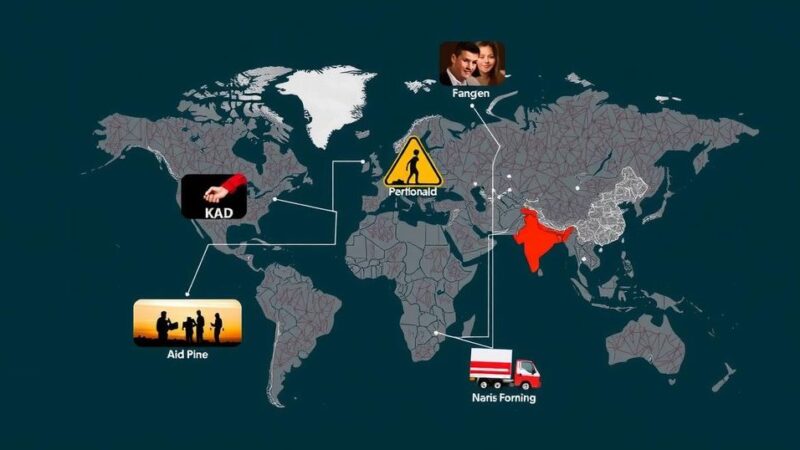Hurricane Helene has triggered a massive search and rescue operation in the southeastern United States, particularly in North Carolina, where more than 100 lives have been lost. Emergency crews are working to restore power and deliver supplies to isolated towns following widespread devastation, with the death toll likely to rise as recovery efforts continue.
In the aftermath of Hurricane Helene, emergency crews have mobilized a substantial search and rescue operation across the southeastern United States, particularly focusing on North Carolina. The tropical storm, which initially developed into a hurricane, wreaked havoc across multiple states, leaving a trail of destruction and loss of life. Emergency teams are currently working tirelessly to clear debris from roads, restore power, and deliver essential supplies including food and water to isolated communities that have been severely impacted by the storm’s aftermath. The hurricane made landfall on the Florida Gulf coast before traversing through states including North Carolina, South Carolina, Georgia, Florida, Tennessee, and Virginia, resulting in over 100 fatalities. As rescue operations continue, this number is anticipated to increase as teams access remote areas that were previously unreachable. Reports indicate that approximately 300 roads remain closed in North Carolina alone, with over 7,000 residents having sought assistance from the United States Federal Emergency Management Agency (FEMA). The North Carolina National Guard is carrying out extensive airlift operations, transporting around 1,000 tons of food and water to these stranded communities via helicopter and fixed-wing aircrafts. One such community, Bat Cave, located 100 miles west of Charlotte, has suffered extensively, with local rivers reaching record flood levels, which have contributed to the physical destruction of homes and infrastructure. Both federal and state agencies have launched significant recovery efforts, with an estimated 1.8 million utility customers experiencing power outages as of Monday. Notably, the Governor of Georgia, Brian Kemp, reported 25 fatalities in his state, while South Carolina has confirmed at least 29 deaths. In Buncombe County, North Carolina, the death toll reached 40, highlighting the severe impact of the storm in this mountainous region known for its tourism. North Carolina Governor Roy Cooper has emphasized the unprecedented nature of this disaster, noting the substantial resources that will be necessary to address both immediate and long-term recovery needs. “The devastation was beyond belief, and even when you prepare for something like this, this is something that’s never happened before in western North Carolina. Search and rescue teams are continuing to work,” stated Governor Cooper during a recent news briefing. Currently, around 1,200 federal personnel are assisting local responders as the U.S. Army Corps of Engineers aims to facilitate major debris removal to aid in restoring the affected communities.
Hurricane Helene left a path of destruction as it traveled through the southeastern United States, making landfall on the Gulf Coast of Florida before causing extensive damage in multiple states. The storm led to significant flooding, damage to homes, and loss of life, necessitating a large-scale response from emergency services and government agencies. The search and rescue efforts are focused on reaching isolated towns, restoring essential services, and providing humanitarian aid. The natural disaster serves as a stark reminder of the vulnerabilities faced by certain communities during severe weather events, particularly in areas prone to flooding.
In summary, Hurricane Helene has caused catastrophic damage across several southeastern states, particularly affecting North Carolina, where emergency response teams are diligently working to rescue individuals, restore essential services, and deliver aid to those in need. With mounting fatalities and extensive infrastructure damage, the recovery efforts are ongoing and will require substantial resources to ensure that affected communities can rebuild and recover. Governor Roy Cooper and other officials are emphasizing the unprecedented nature of this disaster, marking a significant event in the history of weather-related catastrophes in the region.
Original Source: www.aljazeera.com






